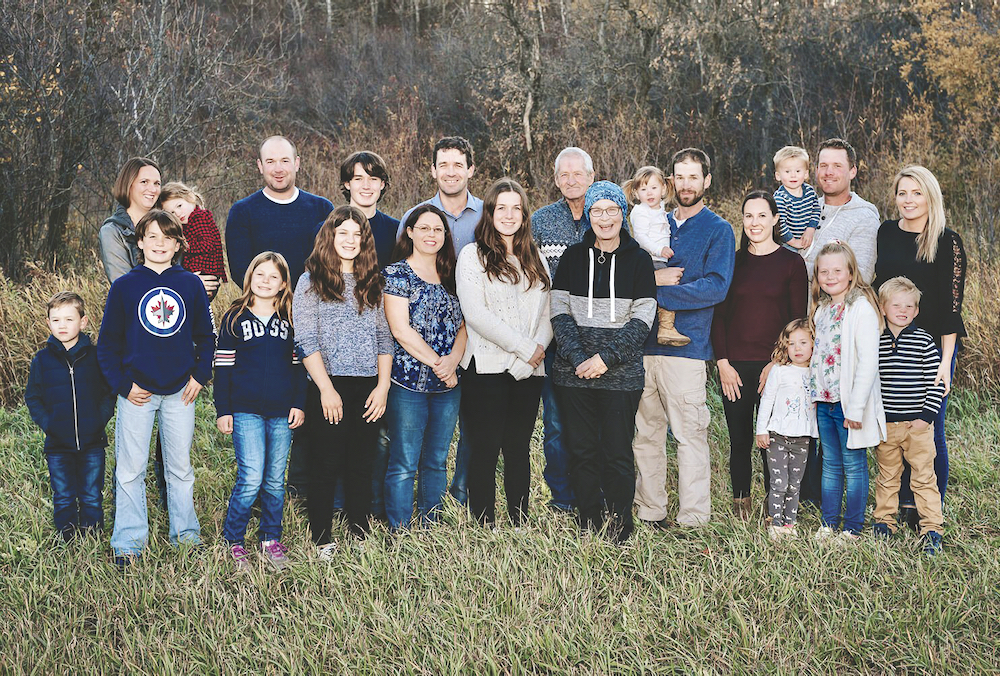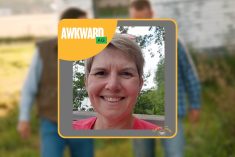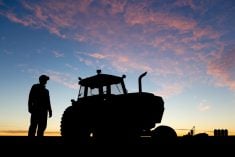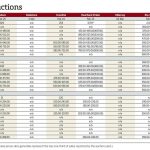It’s the biggest business day of the year for Katie and Andre Steppler.
Bull sale.
Standing on the sales block at their annual bull sale every March, the Stepplers run a perfectly orchestrated show in front of an audience of 200. Many more watch online.
Read Also
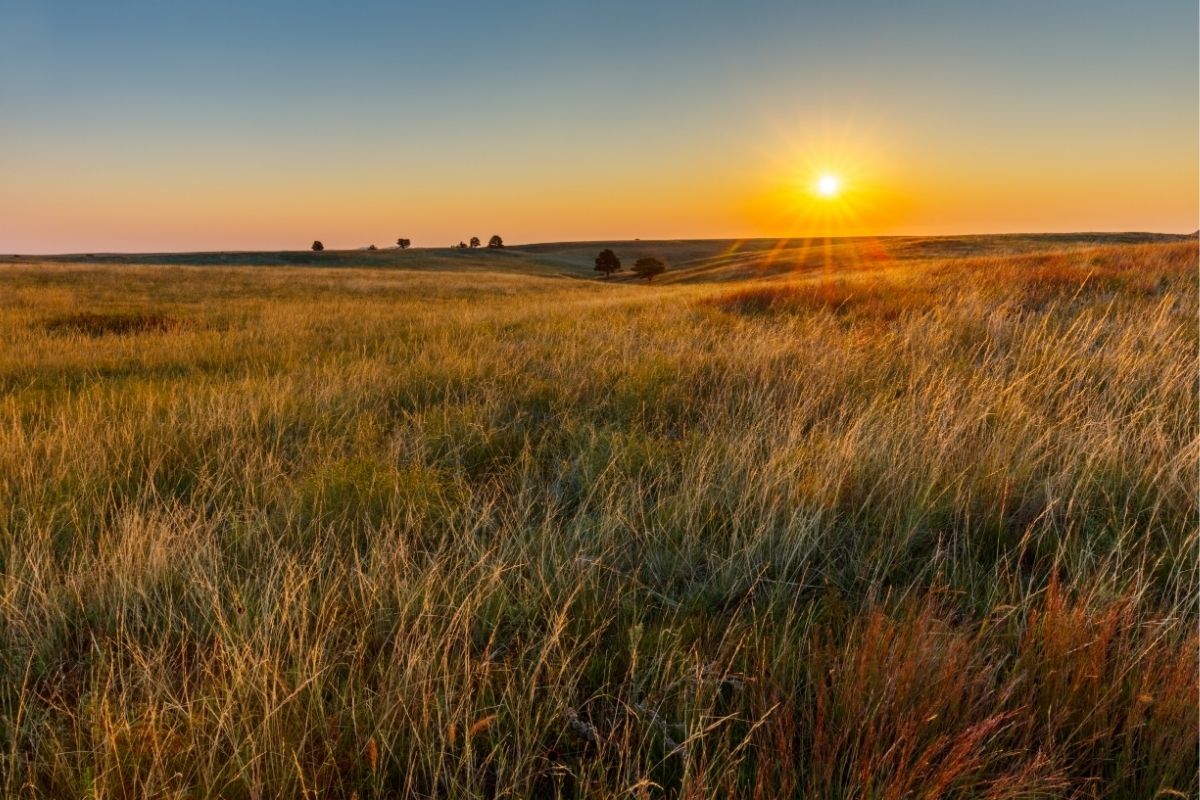
Land title transfers: the Wild West
Know the risks involved when creating land titles.
Amid the booming flow of the auctioneer’s chant, a bull sells every two minutes. The Stepplers introduce each animal. They’re buying for clients, answering phones and recognizing buyers.
They’re making sure sales run according to plan.
“Our communication has to be solid,” says Andre.
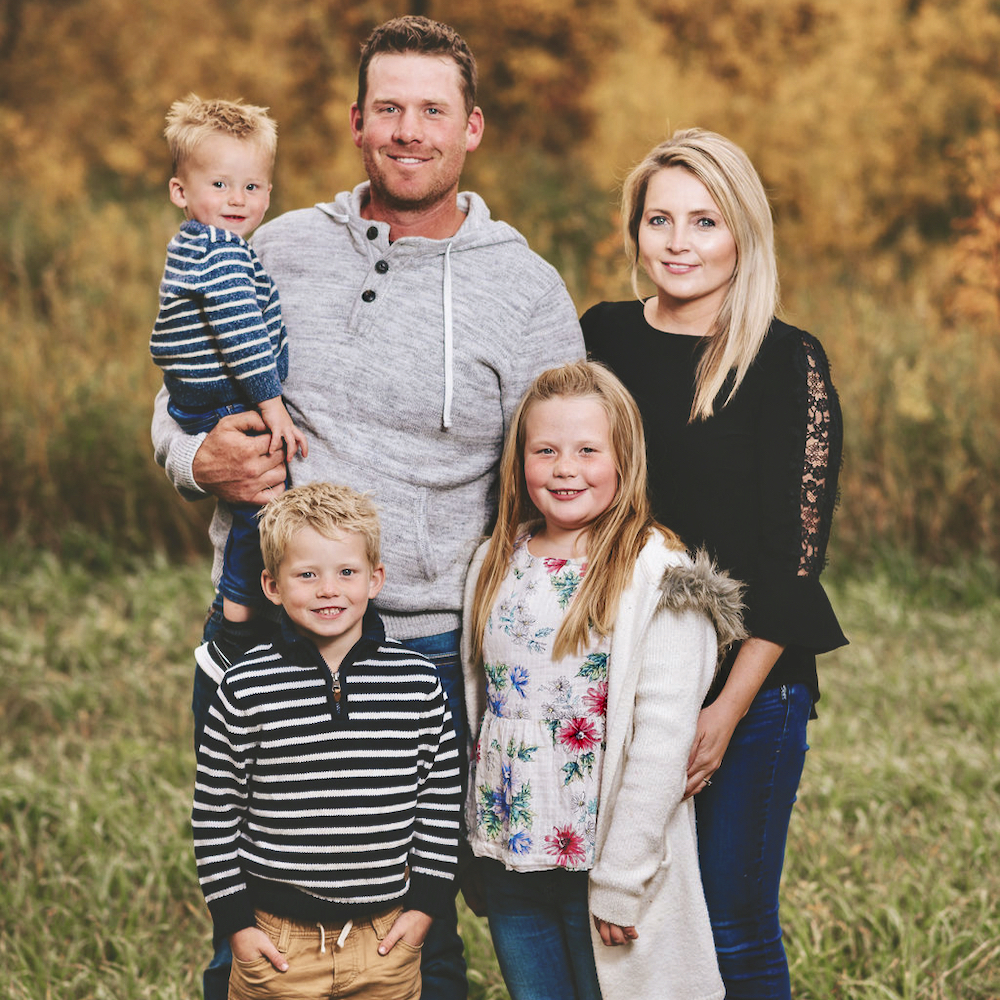
The Stepplers are used to this kind of pressure. Together, they run the cattle operation at Steppler Farms in Miami, Man. It’s one part of a large, multifaceted business that includes a 4,000-acre grain farm and 2,500 honeybee hives.
They’re also used to public scrutiny. In 2020, they were named Manitoba’s Outstanding Young Farmers.
For the Stepplers, this recognition was one cause for celebration among several.
The following year, Steppler Farms reached its centennial anniversary. Over the century, the farm has grown under three successive generations of shrewd management.
In 2007, Andre’s parents, Dan and Pat, set a succession plan in motion that would allow him and his three brothers — Ian, Geoff and Adam — to take over the business gradually, with each brother finding his own niche.
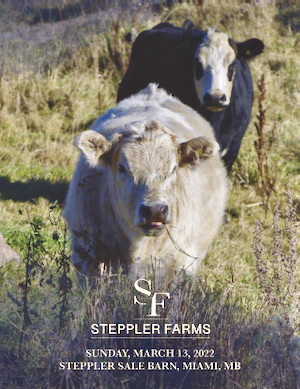
Today, Adam Steppler manages the grain side of the business, Ian runs the honeybee operation, and Geoff, a commercial pilot, works on the farm part-time.
Under Andre and Katie’s direction, the cattle side of the business has changed from the bottom up. The farm owns 600 purebred Charolais breeding females, says Andre, and it’s their 49th year of breeding Charolais. But in the decades since Dan and Pat purchased their first Charolais, that aspect of the business has evolved.
“We’ve changed everything from how we feed them to how we market them, and we’re adding in two more breeds — commercial black Angus and Simmental — to give more options to our customer base,” says Andre.
“When we get to that 50-year mark it’ll be another accomplishment for the farm.”
Sharing the load
Andre and Katie’s partnership does not look like responsibilities divided down the middle; there is no “middle.” It’s more like a mosaic.
Katie works both on and off the farm as a physiotherapist at the regional hospital. Andre takes the lead in managing the cattle operation. When Katie’s at work in town, Andre is focused on herd health and nutrition, human resources and marketing. The latter, he says, is becoming a huge part of the business, and includes print marketing, a website and a strong social media presence.
“We’re putting on a show with the look and idea of the farm,” he says.
Katie says both partners manage day-to-day family life.
“Andre runs the management and daily operations of the farm,” she says. “I really focus in on the administration and marketing. We wouldn’t be able to do what we do without lots of planning and teamwork to get all the farm and family things done.”
The couple shares three children, Brynn (9), Brayden (7) and Declan (2). When their two eldest children were preschoolers, Andre’s mother, Pat, was able to watch them during the day — an “incredible” gift, says Katie, which enabled her to go back to work full-time. These days, Declan attends daycare in Miami while Brynn and Brayden are at school.
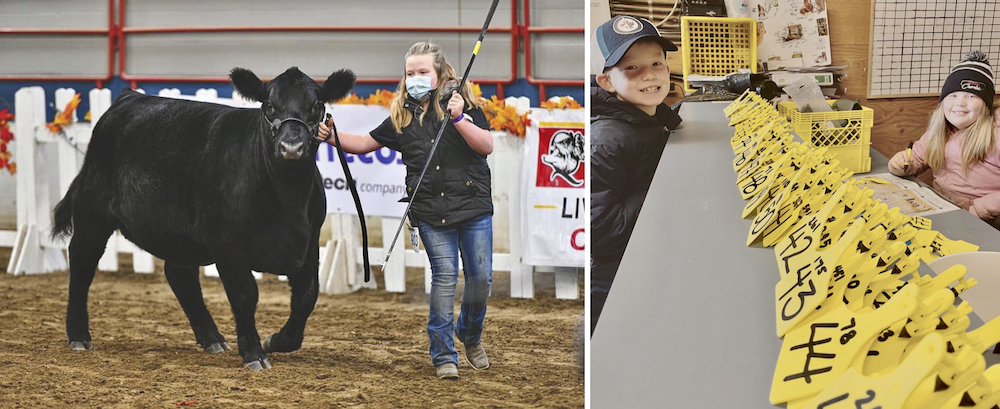
Before, the pandemic, the Stepplers valued travelling to shows and sales as a family: work time for Katie and Andre, but also cherished family vacation time. Katie says they’re “itching” to get back on the road.
“Our last trip before the pandemic hit was a trip to Nova Scotia where Andre judged. We were able to add on a couple of days and tour the East Coast,” she says. “We don’t get away very often but when we do we sure make the most of it.”
Andre says Charolais conferences are geared toward children, and they can learn to show, breed and promote cattle while their parents connect and learn from each other.
Learning is key to both Stepplers: Andre says they both place a high value on educating themselves in “the next thing coming forward in our industries.”
“We’re constantly trying to better ourselves as business people,” he says. “I take the lead on that on the farm side. She does the exact same thing on the physio side.”
Between them, they sit on half a dozen boards: Andre is on a provincial committee for Manitoba beef, and is a parent chair in the school; they’re both on the agriculture society board.
“If you want to see your area progress, you have to take a role,” says Andre. “With that said, we can use what we learn in those organizations and pull it back to our farm, and build networks in our communities. There’s a lot of benefits that we get out of them.”
And they’re fun, he adds: “They give you an excuse to get off the farm and meet up with friends.”
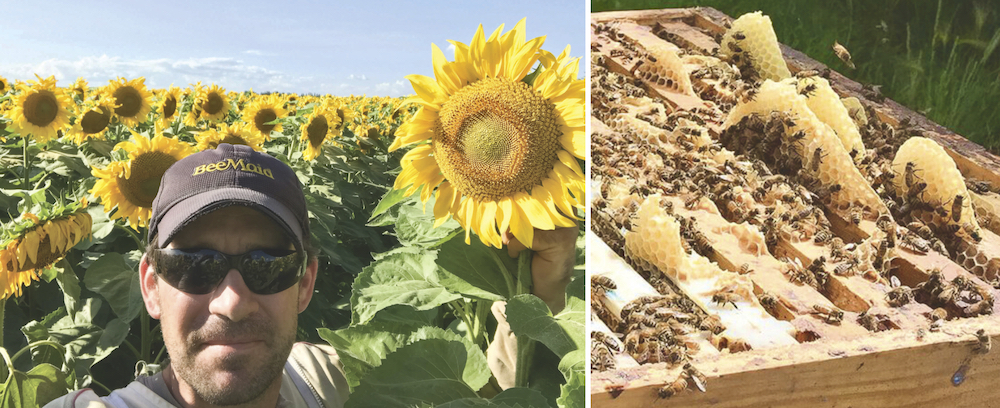
Communicating – and fights
With so many balls in the air, one of them is bound to get dropped every now and then — or blown off course by Mother Nature.
When that happens, how do the Stepplers handle the stress?
“There is no doubt that when you’re dealing with livestock and other people, it has the ability to heighten the emotions and the reality (is that) conflicts are going to occur,” says Andre with a laugh.
Katie agrees: there are good days, she says, and there are very, very bad days.
They get through those days by talking, and by being watchful so they can step in when the other person is obviously overwhelmed.
“Our main goal is to be able to openly communicate and talk about challenges when they arise and when we notice the other person bombarded or overloaded with work, then we can step in and take away some of that stress whether it’s with taking kids somewhere or helping out with bookwork or administration stuff that needs to be done,” she says.
“Even though Andre hasn’t slept a full night or had a day off in months, if he sees I am overwhelmed he will step in and help me out.”
Andre says “heightened” communication and complete transparency are formidable tools in preventing surprises — a major potential cause for conflict.
They also recognize the need for space, sometimes. Katie’s job off-farm provides that naturally.
“She’s working her butt off there but it’s a removal where she can turn the farm off,” he says.
But both jobs are life-giving, and for Katie, working with Andre and the kids on the farm is both a passion and a joy–well worth the occasional stressful days, and the inevitable lapses in communication.
Gender roles on the farm
Both Andre and Katie strongly believe that women and men bring equal leadership potential to agriculture.
On their farm, no roles split cleanly down gendered lines. True, Katie manages most tasks related to household organization and the children’s schedules. But those jobs aren’t solely “hers” any more than rounding up cattle is solely Andre’s.
“Some days I get home from work and supper is on the table and laundry is put away,” she says. “The next day I might go out and work with Andre all day picturing bulls in the bull pen or driving a truck to haul cattle to pasture.”
Andre argues that strong teamwork has always been a requirement for family farms. It isn’t a new concept.
“Farmers don’t have the luxury of nine-to-five jobs,” he says. “You never know what role you have to pick up. That’s even more true now. Those roles are changing, though: if Kate has an interview, suddenly I’m on kid duty or making supper.
“Farming is kind of a controlled chaos: there are all kinds of stuff coming at you, and so many demands — the demands of the kids and keeping the house running, as well as the business. It’s always been a team, but the roles are changing.”
These changes are playing out in the fourth generation at Steppler Farms. Katie says that so far the couple’s daughter Brynn is more interested in the farm than their sons. It’s not going to hold Brynn back as far as the senior Stepplers are concerned, but gender stereotyping does still play out in farming communities, and Katie says people are occasionally surprised to hear Brynn say she wants to farm when she grows up. The assumption is that she’ll want to work off-farm.
Katie says she and her friends talk about the fact that “it’s assumed women farmers who stay at home full-time to farm are stay-at-home moms and not full-time farmers who bring just as much to the farm as their husbands.”
Andre says he’s heartened seeing his daughter’s interest in farm leadership.
“There’s absolutely no reason why she couldn’t have the same role or a higher level of (responsibility) than my sons,” he says. “As our generation gets further and further along, that’s going to be accepted more and more.
“When people call and ask about a bull, they won’t just ask, ‘Is your dad there? all the time.”


